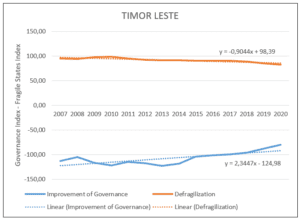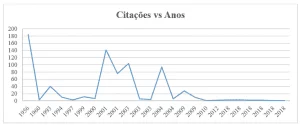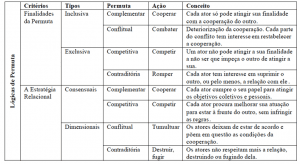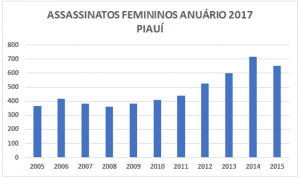ORIGINAL ARTICLE
MOROSINI, Agostinho [1]
MOROSINI, Agostinho. Responsible fatherhood: a sociological reflection on paternal abandonment. Revista Científica Multidisciplinar Núcleo do Conhecimento. Year. 08, Ed. 01, Vol. 03, pp. 42-52. January 2023. ISSN: 2448-0959, Access link: https://www.nucleodoconhecimento.com.br/social-sciences/paternal-abandonment, DOI: 10.32749/nucleodoconhecimento.com.br/social-sciences/paternal-abandonment
ABSTRACT
This article aims to reflect on responsible parenthood and the phenomenon of paternal abandonment from a sociological perspective. The existence of this phenomenon is assumed, accompanied by a social invisibility: that it exists, but is not debated. In the final considerations, it is observed that the phenomenon of paternal abandonment has worsened since modern times, but there are traces of its existence since classical Greek antiquity, also serving as an alert to the need to remove this phenomenon of invisibility social life and to encourage ways of overcoming it.
Keywords: Abandonment, Fatherhood, Responsibility, Social invisibility.
1. INTRODUCTION
In Sociology studies, one of the phenomena found in societies is social invisibility, as is the case of paternal abandonment. This is precisely the problem of this research, which aims to reflect on the phenomenon of paternal abandonment from a sociological perspective.
It is assumed that in every society there are phenomena or types of conduct that can be classified as “social facts” and that, according to Durkheim (1999), are not only external to the individual, but are also endowed with a force imperative and coercive by which they impose themselves on him, whether he likes it or not.
The proposal for this theme arose from the observation of the undeniable existence of the phenomenon of paternal abandonment, accompanied by some invisibility. In the thesis by Dagoberto Rosa de Jesus (2022), arguments are developed, based on Brazilian literature and Greek mythology, showing the problem of orphanhood since ancient times. In this study, Jesus (2022) leads the reader to think about orphanhood, seeking to show the theme of memory in the evocation of childhood, where there is a space referring to the lack of a father or the absence of a mother. This article is at this point.
The theoretical basis is based on: Durkheim (1999), on social phenomena or social facts; MacIntyre (2001), who analyzes emotivism, the loss of parameters and paradigms for living ethics in modern times; Bauman (2004), who defends a superficiality, a kind of liquidity in human behavior; Jesus (2022), current author who, through literature, raises the discussion of paternity, showing the problem of orphanhood; Lins (2009), especially in the area of Philosophy of Education, which demonstrates the importance of ethics and the need to form an ethical subject. Other authors are considered throughout the text, as they corroborate the theme.
Paul Ricoeur’s (2013) methodology of hermeneutic interpretation is used. This method of analysis makes it possible to extract fundamental information contained in the documents, leading the researcher to possible approximations and conclusions. In this approach, it is fundamental to pay attention to the meaning of the concepts expressed in the speeches and actions that are presented.
2. PATERNITY AND RESPONSIBILITY
Unlike the figure of the mother, which is concrete and almost indisputable, the image of the father can be mixed with certainties and doubts. The term father, translated from the Latin pater, above the meaning of parent, aiming at procreation, implies recognition as a father in relation to the child. In the novel by Machado de Assis (1839-1908), in his work Dom Casmurro (ASSIS, 2020), it leaves doubt among the characters, whether Capitu’s son is in fact Bentinho’s or Escobar’s. However, without judging whether there was in fact infidelity or not, there is a certainty that Capitu is the mother.
According to Savanti (2009), “the history of fatherhood is intrinsically linked to the way in which each culture conceived the relationship between family and social organization” (emphasis added). In this statement, referring to the history of paternity in cultures, matriarchy and patriarchy can be included, with their particular characteristics and consequences. It is not intended to delve into this area here in this work. However, the author observes that, from the century. XX, there were significant changes in what was considered the traditional family, now questioned in its structures, mainly with the social devaluation of the father figure. It includes, among other factors, the feminist movement, gender issues and bioethics issues, pertinent subjects, but which it is not intended to deepen in this work, leaving them as a suggestion for those who qualify to deal with these issues. What matters for this text is the question of responsible and irresponsible paternity.
In order to truly have paternity, there must also be responsibility, otherwise only the sense of parent remains. However, the current reality shows the difficulty of many people in establishing lasting bonds in the passing time. Bauman (2004) points to possible symptoms of fragility in human relationships, a reality that requires a closer look, especially with regard to people in vulnerable situations. In post-modernity, human experiences and relationships have become superficial, uncommitted to the most relevant values that should guide society, such as: truthfulness, fidelity, honesty. Relationships, most of the time, are just for “trying on”.
It is in this dynamic of the postmodern world that Wojtyla (2016, p. 221) emphasizes that “man and woman, in their marital relationships, are not in a relationship limited to themselves: by force of things, their relationship encompasses the new person who, thanks to their union, can be (pro)created”. The author refers to the expression “new person”, concerning the child of the couple. Note the other expression “may be”, as the author discusses at length in his work, showing the fundamental question that the couple must ask: “can I be a father?” or “can I be a mother?” According to the author, when the potential element of fatherhood and motherhood is excluded from conjugal sexual relations, only the intention of sexual pleasure remains. That is, when the man or woman absolutely rejects the idea of being a father or mother, they run the risk of objectifying the person of the other and merely seeking sexual pleasure, which jeopardizes affective love and the stability of the union.
What does the combination of the two terms responsibility and paternity mean? One can think of a sense of responsibility, a morally conscious life, as opposed to the practice of immorality. According to Von Hildebrand (2020, p. 38-39), “man endowed with a sense of responsibility understands, therefore, all the seriousness of the world of values and their requirements, taking them into account. Bear in mind the seriousness and irrevocable nature of reality in each decision” (emphasis added). There is no concern here to conceptualize responsibility, but to show, according to the author, the importance of a conscious life, based on fundamental values for an ethical and virtuous life.
3. A REFLECTION FROM A SOCIOLOGICAL PERSPECTIVE
It is possible to observe, through the literature and in a sociological perspective, that the phenomenon of paternal abandonment is not just something of the present time. According to Jesus (2022), there are indications in Brazilian literature that the existence of paternal abandonment dates back to ancient times and the resource that writers used were their literary productions, especially from the 19th century onwards. XVI:
Pela pena de Ana Miranda podemos ver um Brasil que iniciava sua história tendo muitos de seus personagens marcados pelo selo da orfandade. Essa ausência do pai ou da mãe na literatura e, por que não dizer, na história de nosso país remonta desde o século XVI: um país de órfãos. Deste período até os dias de hoje, essa marca pode ser observada na literatura, posto ser este espaço uma forma de representação da realidade. Esse indivíduo que, como afirma Riobaldo, tem um “escuro nascimento” (ROSA, 2019, p. 127), se apresenta na literatura nos mais diversos textos, na prosa, no verso e nas mais diversas formas das manifestações culturais e artísticas, desde o cancioneiro popular, passando por Machado de Assis, Graciliano Ramos, Guimarães Rosa e chegando a contemporâneos, como Milton Hatoum e Ana Miranda, entre tantos outros (JESUS, 2022, p. 45).
It is important to point out that the focus of this article is not orphanhood, however it is noted that this is one of the direct consequences linked to paternal abandonment. In the highlighted text, the author shows an invisible, but existing and undeniable scenario of reality, that is, of the real world. And, if in the 16th century, the factors that provoked the phenomenon were directly related to the European capital, the current situation is quite different, due to the globalized world of postmodernity, since one of the symptoms of these technological times (Modernity and Postmodernity) is the paradox in which humanity advances very fast technologically, – which is good, because it brings possibilities for improvement – but, at the same time, it regresses ethically and morally.
The sociologist Durkheim (1999) uses the idea of “social fact” to show that in every society there are phenomena, types of conduct or ways of thinking that, according to this author, are not only external to the individual, but are also endowed with an imperative and coercive force by which they impose themselves on him whether he likes it or not. In this way, paternal abandonment, analyzed as a “social fact”, points us to several other inherent factors, even if external to the individual, but related to him and which is imperatively imposed on him.
In the concrete case of the absent father or the one who, for some reason, definitely abandoned the woman during the gestation period or due to illness, it must be studied from several angles, that is, from the different perspectives of the human and social sciences, among which he cites themselves: the economic factor; the educational factor; the field of ethics and morals; and the problem of vulnerability, due to the imperative force of these factors.
From the perspective of the economic factor, it can be argued that unemployment is one of the causes that led him to leave his wife. However, there are a number of other intertwined social situations, such as, for example, the individual’s personality in the face of extreme situations (the psychological factor); a possible deficient learning process (both in the family and at school) that the individual has gone through, leading him to behave without ethical and moral parameters; involvement with crime; as well as the various variables resulting from the breakdown of the family.
In the educational field, there is a concern with education for ethical life since childhood. Lins (2009), argues that the development of the person is notably influenced by education and, through this, the subject can reach ethical maturity and moral identity. However, it is extremely necessary that other areas of knowledge address the issue in search of solutions.
The severity of paternal abandonment cannot remain invisible, being only classified as a “social fact”. It is a very hard reality, feeling abandoned by those who had declared “to love forever”. These people are left with indignation, suffering and a feeling of contempt. To this sordid reality or sordidity of the real, Faus (1995), observes that postmodernity has made the experience hard and undeniable, that our social reality is sordid and that the modern illusion had only done to mask the sordidity with beautiful words high-sounding.
The truth is that this is a well-known reality at all times, but hidden by social invisibility. As per Miura; Tardivo and Barrientos (2018), many men abandon their wives when faced with a situation of serious and prolonged illness on her part. A fact that is also a reality observed by Prado and Cunha (2019), with the article in which he refers to the research indicating that the woman is six times more likely to be abandoned by her husband or partner after discovering a disease than the other way around , that is, when the man becomes ill. On the other hand, the reality of women, whether teenagers or adults, who are abandoned by their partners when they become pregnant is not as well known or evidenced. These are existing realities, although they are not so evident.
According to Cortella (2015), the idea of not being noticed or evidenced within a society reaches the concept of invisibility. Thus, applying this idea to the present reflection, this situation points to a phenomenon known as “social invisibility”, that is, when in the various instances of society, people or situations that, although they exist, are not seen or are simply ignored.
When reflecting on this situation from the point of view of ethical and moral principles, even in a generic way, one can perceive changes in the scale of values of individuals in society, depending on the sociocultural environment in which they are inserted. A kind of inversion of things and human attitudes. As the lyrics of a song “Rolam as Pedras” by Kiko Zambianchi (1985) say, “Everything is so right that it seems wrong”. And then: “Everything so wrong, it feels right”:
Vejo sonhos livres, pais, irmãos e filhos […]
Tudo está tão certo que parece errado
É onde não consigo me achar
Luzes da verdade na realidade
Sempre estão mudando de lugar.
Rolam as pedras, devem rolar […]
Tudo tão errado que parece certo
Foi difícil me nivelar
Depois da infância e da liberdade
Que nem sempre quer me acompanhar (ZAMBIANCHI, 1985, s/p).
It is undeniable that values vary, in their gradations, from one culture to another, but some ethical values, such as respect for the person, for being a human person, remain regardless of these variations, as the subject must act ethically anywhere in the world. However, the constant changes in the scale of values, as indicated in the lyrics of this song, increase the dilemmas of the transience of the individual’s phases throughout life. When the validity of fundamental ethical values is disregarded, when faced with the alternation of situations in the dynamism of the social facts that the person experiences, the support of healthy living in society is lost.
About this aspect, Bauman (1998) reminds us, a situation of “post-modernity malaise” in which, since the beginnings of Modernity, it promised the emancipation of man, in relation to traditional structures. However, currently, although numerous technological advances are noticeable, according to the author, modern times are not able to eliminate the harsh realities of suffering in the current structures of society.
One can think of a moral disorder identified by MacIntyre (2004), showing, in current societies, situations revealing a serious moral crisis. This author considers that modern societies are characterized by ideologies, such as: emotivism and relativism, which consist of not adhering to any ethical or moral parameter or paradigm and living in a poorly understood “freedom”, that is, in a riotous life . However, being free does not mean doing everything you want. This would be a form of “debauchery”, as freedom well understood consists of acting ethically, respecting others and oneself in decision-making and having virtuous conduct. Whereas, living without ethical parameters is equivalent to living in moral decay, which can lead humanity to its self-destruction.
Deepening the reflection, it is also considered the possibilities of paternal abandonment due to illness; by teenage pregnancy; and for some shock in the couple’s relationship. Such situations highlight the reality that things don’t always go as planned, while not everyone can handle the unexpected.
One can also find the reality of mothers who are abandoned when they give birth to children with a disability. According to Lourenço (2020 s/p), many parents cannot bear the loss of the “ideal child” and abandon the family. The article cited by the author presents data from the research: “As dores das mães de filhos com deficiência“, with 240 participants, in which psychologist Ana Celeste de Araújo Pitiá states that many mothers accumulate the pain of losing the “ideal child ”, paternal abandonment and emotional overload. The researcher also claims to be a scenario that repeats itself, because, in most cases, it is the women who have to face the struggle for the children to receive dignified treatment, leaving their personal projects to dedicate themselves to their children, because the parents could not bear the idea of having a child different from what they had idealized.
In a survey, Schiro and Koller (2013), show that pregnancy during adolescence, in many respects, has distinct characteristics in the way of perception for each of the sexes, especially with regard to the use of contraceptives, in the evaluation of the self pregnancy in relation to school and work. This fact demonstrates the extent to which pregnancy has different repercussions on the lives of adolescents. There is a kind of transfer of responsibility. For this reason, according to the authors, it would be interesting to investigate teenage pregnancy at other social levels, in order to understand how different socioeconomic contexts can interfere with the performance of teenage parents.
Helpless people are usually silent. According to Miura; Tardivo and Barrientos’s study (2018), “the experience of helplessness, at the time of pregnancy, affects the emotional state of the woman, making it difficult for her to be available to care for herself and the baby”. According to this study, in Brazil, a significant number of pregnant teenagers give birth every year. Partner violence and abandonment were also observed in the experiences of adolescents submitted to the study, further accentuating the situations of vulnerability of young women and their babies. This research also showed the repetition of transgenerational violence, which means that the adolescents experienced violence and/or abandonment by their partners during pregnancy, just as their mothers had already suffered.
In another survey published by Belli (2022), involving 1038 women interviewed, 4% indicated that they had experienced some kind of disruption in their relationship with their husband during pregnancy. In this research, it was found that not all disagreements are directly attributed to the pregnancy itself, but are somehow related to it. On the other hand, there is a percentage of 32% related to behavioral changes, either due to the pregnant woman or her partner. In this context, the parents’ lack of maturity is cited by 26% as another main reason. It is striking to observe that in 11% of the cases the baby itself is the cause of the concussion and for 9% of the parents there is doubt about the paternity of the baby. The conclusion of the research demonstrates that abandonment during pregnancy reaches alarming proportions. On the other hand, it is also observed that it is not difficult to find warrior women fighting, educating and raising their children alone, those known as “breads”.
It can be considered that this ethical relativism, nowadays, is an inheritance of philosophical currents coming, especially, from the first half of the 20th century, such as: individualism, positivism, scientism, collectivism (inspired by Hegelian idealism) (BURGOS, 2018). However, relativist positions make us think about the need to propose a personalist posture, based on ethics as a rescue of the value of the person, in his dignity. Not as a “thing” simply to be used for some purpose beyond its own nature (for example: as an object of desire or profit), but as a unique being that, therefore, must be respected and revered for its dignity as a person human.
4. FINAL CONSIDERATIONS
It is clear that this article does not exhaust the subject. Quite the contrary, it appears as an attempt to bring to light the difficult reality of paternal abandonment, giving rise to new studies. This is the first point to consider at the end of this text. There is a need for new research and more in-depth studies around this specific theme and many others in which they are intertwined.
It is also observed that this phenomenon did not arise in modern times. It can be said that the situation has worsened since Modernity and Post-Modernity, but it dates back to ancient times, as shown by the study of Jesus (2022), which points to orphanhood, not only throughout Brazilian history from of the century XVI, but from the characters of Greek mythology, where one can find evidence of the phenomenon of the absence of the father.
Thus, through the research, studies addressed and exposition of some data throughout the text, without, however, exhausting the scope of the theme, it was possible to issue these considerations, aiming to arouse the interest of readers in the sense of deepening the study of the problem of abandonment paternal. Thus, the theme remains open, presenting possibilities for further studies.
REFERÊNCIAS
ASSIS, Machado de. Dom Casmurro. 2ª Ed. São Paulo: Principis, 2020.
BAUMAN, Zygmunt. O mal-estar da pós-modernidade. Trad. Mauro Gama, Cláudia Martinelli Gama. Rev. Téc. Luís Carlos Fridman. Rio de Janeiro: Jorge Zahar Ed., 1998.
BAUMAN, Zygmunt. Amor Líquido: sobre a fragilidade dos laços humanos. Rio de Janeiro: Jorge Zahar, 2004.
BELLI, Mayara. Uma em cada cinco brasileiras é abandonada na gestação. Famivita, julho de 2022. Disponível em: https://www.famivita.com.br/conteudo/uma-em-cada-cinco-brasileiras-e-abandonada-na-gestacao/. Acesso em: 01 de dez. 2022.
BURGOS, Juan Manuel. Introdução ao personalismo. São Paulo: Cultor de Livros, 2018.
CORTELLA, Mario Sergio. Pensar faz bem: Família, carreira, convivência e ética. Vol. 2. Petrópolis, RJ: Vozes, 2015.
DURKHEIM, Émile. As regras do método sociológico. São Paulo: Martins Fontes, 1999.
FAUS, José Ignácio González. Desafio da pós-modernidade. Trad. Euclides Martins Balancin. São Paulo. Paulinas, 1995.
JESUS, Dagoberto Rosa de. Veredas da orfandade: entre meninos, fazendeiros e jagunços – o menino de Engenho, São Bernardo e Grande Sertão: Veredas. 2022. Tese (Doutorado em Estudos Literários) – Faculdade de Ciências Sociais Aplicadas e Linguagem, Universidade do Estado de Mato Grosso. Tangará da Serra, 2022.
LINS, Maria Judith Sucupira da Costa. Maturidade Ética e Identidade Moral: a construção na prática pedagógica. Rev. Diálogo Educ., Curitiba, v. 9, n. 28, p. 633-649, set./dez., 2009. Disponível em: http://educa.fcc.org.br/pdf/de/v09n28/v09n28a16.pdf. Acesso em: 24 jan. 2023.
LOURENÇO, Tainá. Luta de mães de crianças autistas é marcada pela dor do abandono. Jornal da USP, dezembro de 2020. Disponível em: https://jornal.usp.br/atualidades/luta-de-maes-de-criancas-autistas-e-marcada-pela-dor-do-abandono/. Acesso em 10 dez. 2021.
MACINTYRE, Alasdair. Depois da Virtude: um estudo em teoria moral. Tradução: Jussara Simões. Bauru, SP: Edusc, 2001.
MIURA, Paula Orchiucci; TARDIVO, Leila Salomão de La Plata Cury; BARRIENTOS, Dora Mariela Salcedo. O desamparo vivenciado por mães adolescentes e adolescentes grávidas acolhidas institucionalmente. Ciênc. saúde colet., vol. 23, n. 05, 2018. Disponível em: https://doi.org/10.1590/1413-81232018235.14152016. Acesso em: 10 nov. 2022.
PRADO, Carolina; CUNHA, Simone. Mulheres são mais abandonadas por parceiros quando adoecem. Universa, 2009. Disponível em: https://www.uol.com.br/universa/noticias/redacao/2019/03/18/mulheres-sao-mais-abandonadas-por-parceiros-quando-adoecem-veja-historias.htm. Acesso em: 18 nov. 2022.
RICOEUR, Paul. Hermenêutica e ideologias. 3ª ed. Petrópolis, RJ: Vozes, 2013.
SAVANTI, Alicia Zanotti. Desafios à paternidade na cultura atual. COMMUNIO – Revista Internacional de Teologia e Cultura, v. 28, n. 4, ed. 104. p. 391-402, 2009.
SCHIRO, Eva Diniz Bensaja dei; KOLLER, Silvia Helena. Ser adolescente e ser pai/mãe: gravidez adolescente em uma amostra brasileira. Estudos de Psicologia, vol. 18, n. 03, p. 447-455, 2013. Disponível em: https://www.scielo.br/pdf/epsic/v18n3/05.pdf. Acesso em: 21 out. 2022.
VON HILDEBRAND, Dietrich. A arte de viver. Trad. Artur Padovan e Henrique Elfes. São Paulo: Quadrante, 2020.
WOJTYLA, Karol. Amor e responsabilidade. São Paulo: Cultor de Livros, 2016.
ZAMBIANCHI, Kiko. Rolam as pedras. Letras, 1985. Disponível em: https://www.letras.mus.br/kiko-zambianchi/46828/. Aceso em: 20 de mai. 2022.
[1] Master’s student in Education, Federal University of Rio de Janeiro – UFRJ. Specialization in Sociology, by Claretiano – Centro Universitário, SP. Degree in Theology from the Centro Universitário Salesiano of São Paulo. Graduated in Philosophy, by the Instituto Agostiniano de Filosofia (IAF) in Franca – SP. ORCID: 0000-0003-3691-1263.
Sent: December, 2022.
Approved: January, 2023.




